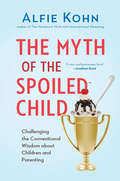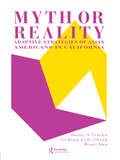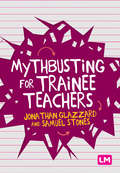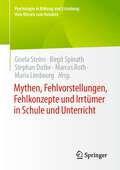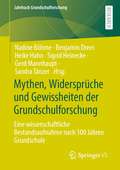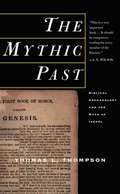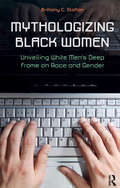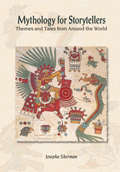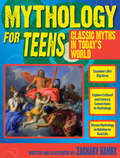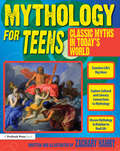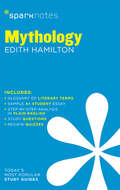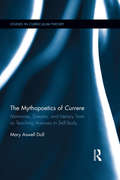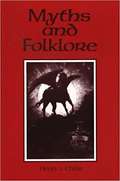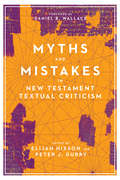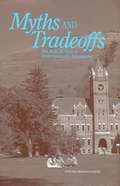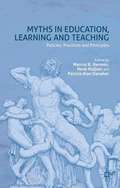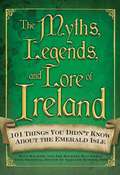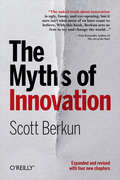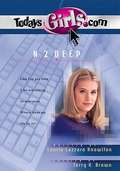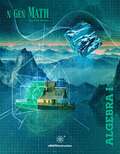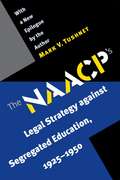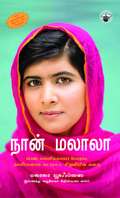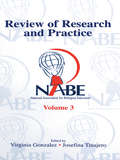- Table View
- List View
The Myth of the Common School
by Charles Leslie GlennFrom the author: Think of this rather as an extended meditation on the history of an idea, indeed of a complex of ideas so powerfully enchanting in their continuing effect that they may fairly be called a "myth": the common school. The myth of the common school as crucible of a single national identity, as the hothouse in which young sprouts are trained to a single state-approved pattern, is my topic here.
The Myth of the Spoiled Child: Challenging the Conventional Wisdom about Children and Parenting
by Alfie KohnSomehow, a set of deeply conservative assumptions about children--what they're like and how they should be raised--have congealed into the conventional wisdom in our society. Parents are accused of being both permissive and overprotective, unwilling to set limits and afraid to let their kids fail. Young people, meanwhile, are routinely described as entitled and narcissistic...among other unflattering adjectives.In The Myth of the Spoiled Child, Alfie Kohn systematically debunks these beliefs--not only challenging erroneous factual claims but also exposing the troubling ideology that underlies them. Complaints about pushover parents and coddled kids are hardly new, he shows, and there is no evidence that either phenomenon is especially widespread today--let alone more common than in previous generations. Moreover, new research reveals that helicopter parenting is quite rare and, surprisingly, may do more good than harm when it does occur. The major threat to healthy child development, John argues, is posed by parenting that is too controlling rather than too indulgent.With the same lively, contrarian style that marked his influential books about rewards, competition, and education, Kohn relies on a vast collection of social science data, as well as on logic and humor, to challenge assertions that appear with numbing regularity in the popular press. These include claims that young people suffer from inflated self-esteem; that they receive trophies, praise, and As too easily; and that they would benefit from more self-discipline and "grit." These conservative beliefs are often accepted without question, even by people who are politically liberal. Kohn's invitation to reexamine our assumptions is particularly timely, then; his book has the potential to change our culture's conversation about kids and the people who raise them.
Myth Or Reality?: Adaptive Strategies Of Asian Americans In California
by Henry T. Trueba Lilly Cheng Kenji ImaFirst published in 1992. Routledge is an imprint of Taylor & Francis, an informa company.
Mythbusting for Trainee Teachers
by Jonathan Glazzard Samuel StonesTeaching and education are awash with myths. This book explores some of them for trainee teachers and asks: - Where does this myth come from? - How do we know that it isn&’t true? - Why does it matter that we challenge it? Every chapter poses a few common myths within that area and explores what the research actually says. Using research as a basis to explore what it true and what is false, it gives trainee teachers a much more informed understanding and encourages important discussions about teaching and learning.
Mythbusting for Trainee Teachers
by Jonathan Glazzard Samuel StonesTeaching and education are awash with myths. This book explores some of them for trainee teachers and asks: - Where does this myth come from? - How do we know that it isn&’t true? - Why does it matter that we challenge it? Every chapter poses a few common myths within that area and explores what the research actually says. Using research as a basis to explore what it true and what is false, it gives trainee teachers a much more informed understanding and encourages important discussions about teaching and learning.
Mythen, Fehlvorstellungen, Fehlkonzepte und Irrtümer in Schule und Unterricht (Psychologie in Bildung und Erziehung: Vom Wissen zum Handeln)
by Gisela Steins Birgit Spinath Stephan Dutke Marcus Roth Maria LimbourgIn der Schule - wie in allen Lebensbereichen unserer Gesellschaft - existieren zahlreiche Mythen, Fehlvorstellungen, Fehlkonzepte und Irrtümer. In diesem Band gehen wir auf die Entstehung von Mythen, ihre Veränderungsmöglichkeiten und ausgewählte spezifische Mythen rund um Lehren und Lernen, aber auch auf Mythen wichtiger Themen des Sozialen im Schulkontext ein. Die Mythen, Fehlvorstellungen, Fehlkonzepte und Irrtümer werden aufbereitet, es wird beschrieben, worin der Mythos besteht, was Empirie und Theorie dazu zu sagen haben und wie die Mythen revidiert werden können. Konsequenzen für Schule und Unterricht werden herausgearbeitet. In diesem Band versammeln sich elf Beiträge, welche auf aktueller psychologischer Forschung beruhen und drei Themenkomplexe aufgreifen. Die ersten drei Beiträge des Bandes vermitteln Wissen zu der Frage, wie man Mythen erkennen kann, woher sie kommen und wie mit ihnen umzugehen ist. Diesem Themenkomplex folgen sieben Beiträge zu Mythen rund um das Lehren und Lernen sowie Themen des Sozialen im Schulkontext. Der den Band abschließende Beitrag richtet den Blick auf die Ausbildung der Lehrkräfte als einem dritten Themenkomplex. Die Beschäftigung mit dem Thema lohnt sich für alle Menschen, die erzieherisch und lehrend tätig sind. Das Thema ist nicht als Kritik an der Praxis am Lehrberuf zu verstehen, sondern als Anregung dafür, auf eigene Vorstellungen aus einer anderen Perspektive zu schauen und sich anregen zu lassen, die ein oder andere Praxis zu verändern.
Mythen, Widersprüche und Gewissheiten der Grundschulforschung: Eine wissenschaftliche Bestandsaufnahme nach 100 Jahren Grundschule (Jahrbuch Grundschulforschung #25)
by Nadine Böhme Benjamin Dreer Heike Hahn Sigrid Heinecke Gerd Mannhaupt Sandra TänzerDer Tagungsband bietet anlässlich des 100-jährigen Jubiläums der Grundschule in Deutschland eine Bestandsaufnahme wissenschaftlicher Erkenntnisse auf vier Ebenen der Grundschulforschung. Der Band speist sich aus den Beiträgen der 28. Jahrestagung der DGfE-Kommission Grundschulforschung und Pädagogik der Primarstufe, die 2019 an der Universität Erfurt stattfand.
The Mythic Past: Biblical Archaeology and the Myth of Israel
by Thomas L. ThompsonThe Jewish people's historical claims to a small area of land bordering the eastern Mediterranean are not only the foundation for the modern state of Israel, they are also at the very heart of Judeo-Christian belief. Yet in The Mythic Past, Thomas Thompson argues that such claims are grounded in literary myth, not history. Among the author's startling conclusions are these:* There never was a "united monarch" of Israel in biblical times* We can no longer talk about a time of the Patriarchs* The entire notion of "Israel" and its history is a literary fiction. The Mythic Past provides refreshing new ways to read the Old Testament as the great literature it was meant to be. At the same time, its controversial conclusions about Jewish history are sure to prove incendiary in a worldwide debate about one of the world's seminal texts, and one of its most bitterly contested regions.
Mythologizing Black Women: Unveiling White Men's Racist Deep Frame on Race and Gender
by Brittany C. SlattonIn this book Brittany C. Slatton uses innovative internet research methods to reveal contemporary prejudices about relationship partners. In doing so she thoroughly refutes the popular ideology of a post-racial America. Slatton examines the 'deep frame' of white men found in opinions and emotional reactions to black women and their body types, personalities, behaviours, and styles of speech. Their internet responses to questionnaires shows how they treat as common sense radicalised, gendered, and classed versions of black women. Mythologizing Black Women argues that the internet acts as a backstage setting, allowing white men to anonymously express raw feelings about race and sexuality without the fear of reprimand.
Mythology for Storytellers: Themes and Tales from Around the World
by Howard J ShermanIllustrated in full color throughout, this delightful collection puts the riches of world mythology at the fingertips of students and storytellers alike. It is a treaury of favorite and little-known tales from Africa, Asia, Europe, the Americas, Australia, and Oceania, gracefully retold and accompanied by fascinating, detailed information on their historic and cultural backgrounds. The introduction provides an informative overview of mythology, its purpose in world cultures, and myth in contemporary society and popular culture. Mythic themes are defined and the often-misunderstood difference between myth and legend explained. Following this, the main sections of the book are arranged thematically, covering The Creation, Death and Rebirth, Myths of Origins, Myths of the Gods, and Myths of Heroes. Each section begins by comparing its theme cross-culturally, explaining similarities and differences in the mthic narratives. Myths from diverse cultures are then presented, introduced, and retold in a highly readable fashion. A bibliography follows each retelling so readers can find more information on the culture, myth, and deities. Character, geographical, and general indexes round out this volume, and a master bibliography facilitates research. For students, storytellers, or anyone interested in the wealth of world mythology, Mythology: Stories and Themes from Around the World provides answers to common research questions, sources for myths, and stories that will delight, inform, and captivate.
Mythology for Teens: Classic Myths for Today's World
by Zachary HambyMythology for Teens: Classic Myths in Today's World takes classical mythology to a new level by relating ancient stories to the culture, history, art, and literature of today. By looking at topics instrumental to both mythology and modern culture, teens are encouraged to question topics such as the repercussions of war, vanity and greed, the workings of fate, the nature of love, the roles of women in society, revenge and forgiveness, the meaning of life, and national identity. The majority of high school humanities and Advanced Placement courses teach classical mythology by simply retelling myths. By using teen-friendly reader?s theater scripts to tell the legends, in combination with activities, discussion questions, and exercises that help students apply what they've learned to real life, Mythology for Teens takes the classic myths taught in school and turns them into an engaging, interesting, and fresh way of looking at old material.
Mythology for Teens: Classic Myths in Today's World (Grades 7-12)
by Zachary HambyMythology for Teens: Classic Myths in Today's World takes classical mythology to a new level by relating ancient stories to the culture, history, art, and literature of today. By looking at topics instrumental to both mythology and modern culture, teens are encouraged to question topics such as the repercussions of war, vanity and greed, the workings of fate, the nature of love, the roles of women in society, revenge and forgiveness, the meaning of life, and national identity. The majority of high school humanities and Advanced Placement courses teach classical mythology by simply retelling myths. By using teen-friendly reader's theater scripts to tell the legends, in combination with activities, discussion questions, and exercises that help students apply what they've learned to real life, Mythology for Teens takes the classic myths taught in school and turns them into an engaging, interesting, and fresh way of looking at old material. Grades 7-12
Mythology: Gods and Mortals (SparkCharts)
by SparkNotesMythology: Gods and Mortals (SparkCharts) by Edith Hamilton Making the reading experience fun! When a paper is due, and dreaded exams loom, here's the lit-crit help students need to succeed! SparkNotes Literature Guides make studying smarter, better, and faster. They provide chapter-by-chapter analysis; explanations of key themes, motifs, and symbols; a review quiz; and essay topics. Lively and accessible, SparkNotes is perfect for late-night studying and paper writing. Includes:An A+ Essay—an actual literary essay written about the Spark-ed book—to show students how a paper should be written.16 pages devoted to writing a literary essay including: a glossary of literary termsStep-by-step tutoring on how to write a literary essayA feature on how not to plagiarize
The Mythopoetics of Currere: Memories, Dreams, and Literary Texts as Teaching Avenues to Self-Study (Studies in Curriculum Theory Series #43)
by Mary Aswell DollIn The Mythopoetics of Currere, Doll uses depth psychology, myth, and literature to offer a new approach to currere, the root of curriculum, through essays exploring significant literary images that open doorways into the fictions that layer the self. Offering a focus on the body, queer love, false belief, strangeness, otherness, and chaos, this book suggests new metaphors for understanding why currere is what matters most in curriculum.
Myths And Folklore
by Henry I. ChristPurpose: To introduce high school students to the world of myth, legend and folktale, both in the past and in our society today. Substantial chapters explore: myths of ancient Greece and Rome; tales of the Trojan War;
Myths and Mistakes in New Testament Textual Criticism
by Elijah Hixson Peter J. GurryMisquoting Jesusdoes
Myths and Tradeoffs: The Role of Tests in Undergraduate Admissions
by Steering Committee for the Workshop on Higher Education AdmissionsIn 1996, more than 8 million students went through the complicated, stressful, and sometimes bewildering process of applying to colleges and universities in the United States. Much of the nail-biting centered around the standardized tests that those students took to gain entrance. The National Academies recently looked at some of the persistent myths about admission testing and examined the specific tradeoffs entailed in the use of these tests.
Myths in Education, Learning and Teaching
by Marcus K. Harmes Henk Huijser Patrick Alan DanaherA myth empowers by providing a foundation story of a society, culture or civilization, bringing coherence and meaning to identity and underpinning custom. But 'myth' also carries darker meaning, suggesting ideas or practices that are fallacious or accepted uncritically. This book engages with these possible understandings of myths and uses them to interrogate educational practice and theory in three main areas: online teaching; language teaching; and specific tertiary or university based issues. The focus is on exploring and defining myths across a wide range of contexts and educational sectors. It brings together a broad range of senior researchers and middle-career and early-career scholars from the United Kingdom, North America, Europe, the Middle East and Australasia.
The Myths, Legends, and Lore of Ireland: 101 Things You Didn't Know About the Emerald Isle
by Amy Hackney BlackwellMore than 20 million Americans claim some sort of Irish heritage. But how much do you really know about this amazing country? Forget about shamrocks, leprechauns, and all that blarney--this book is a concise and authoritative guide that dispels the myths and tells the true stories of the Irish. Highlights include:Who St. Patrick really wasThe story behind "Sunday Bloody Sunday"Scandals in the Irish churchComing to America and the real gangs of New York The spooky truth behind changelings, leprechauns, and fairiesComplete with an Irish language primer and pronunciation guide, this book is an informative pot of gold for everyone who loves the Irish!
The Myths of Innovation
by Scott BerkunIn this new paperback edition of the classic bestseller, you'll be taken on a hilarious, fast-paced ride through the history of ideas. Author Scott Berkun will show you how to transcend the false stories that many business experts, scientists, and much of pop culture foolishly use to guide their thinking about how ideas change the world. With four new chapters on putting the ideas in the book to work, updated references and over 50 corrections and improvements, now is the time to get past the myths, and change the world.You'll have fun while you learn:Where ideas come fromThe true history of historyWhy most people don't like ideasHow great managers make ideas thriveThe importance of problem findingThe simple plan (new for paperback)Since its initial publication, this classic bestseller has been discussed on NPR, MSNBC, CNBC, and at Yale University, MIT, Carnegie Mellon University, Microsoft, Apple, Intel, Google, Amazon.com, and other major media, corporations, and universities around the world. It has changed the way thousands of leaders and creators understand the world. Now in an updated and expanded paperback edition, it's a fantastic time to explore or rediscover this powerful view of the world of ideas."Sets us free to try and change the world."--Guy Kawasaki, Author of Art of The Start"Small, simple, powerful: an innovative book about innovation."--Don Norman, author of Design of Everyday Things"Insightful, inspiring, evocative, and just plain fun to read. It's totally great."--John Seely Brown, Former Director, Xerox Palo Alto Research Center (PARC)"Methodically and entertainingly dismantling the cliches that surround the process of innovation."--Scott Rosenberg, author of Dreaming in Code; cofounder of Salon.com"Will inspire you to come up with breakthrough ideas of your own."--Alan Cooper, Father of Visual Basic and author of The Inmates are Running the Asylum"Brimming with insights and historical examples, Berkun's book not only debunks widely held myths about innovation, it also points the ways toward making your new ideas stick."--Tom Kelley, GM, IDEO; author of The Ten Faces of Innovation
N 2 Deep (TodaysGirls.com #7)
by Terry Brown Laurie KnowltonAmber needs help from God when she is talked into trying out for the soccer team while being swamped with demands for the Web site she is developing for her school.
N-Gen Math Algebra I
by Kirk WeilerThis workbook contains more than 100 lessons and homework sets that are aligned to the Next Generation Learning Standards. The format of this workbook is spiral bound book with the pages three-hole punched. This workbook is a collection of the lessons and homework sets that are available in our Courses section. Unit reviews are also included in the printed books.
The NAACP's Legal Strategy against Segregated Education, 1925-1950
by Mark V. TushnetThe NAACP's fight against segregated education--the first public interest litigation campaign--culminated in the 1954 Brown decision. While touching on the general social, political, and economic climate in which the NAACP acted, Mark V. Tushnet emphasizes the internal workings of the organization as revealed in its own documents. He argues that the dedication and the political and legal skills of staff members such as Walter White, Charles Hamilton Houston, and Thurgood Marshall were responsible for the ultimate success of public interest law. This edition contains a new epilogue by the author that addresses general questions of litigation strategy, the persistent question of whether the Brown decision mattered, and the legacy of Brown through the Burger and Rehnquist courts.
Naan Malaalaa
by Translated into Tamil by Padmaja Narayananஅநீதி இழைக்கப்பட்டு, வாய் அடைக்கப்பட்ட அனைத்துப் பெண்களுக்கும் காணிக்கை. ஒன்றாக ஒலிக்கும்போது நம் குரல் கேட்கப்படும்.
NABE Review of Research and Practice: Volume 3
by Virgina Gonzalez Josefina TinajeroThe National Association of Bilingual Education (NABE) published electronic issues of Volumes 1 and 2 of the NABE Journal of Research and Practice to offer archival records of 2002 and 2003 NABE conferences presentations. Beginning with Volume 3, the title of the publication is changed to NABE Review of Research and Practice and is published by Lawrence Erlbaum Associates, Inc. for NABE. NABE Review of Research and Practice, Volume 3 fulfills the following goals: *to establish an annual archival record of cutting-edge NABE conference presentations that generate new knowledge and advance the field of bilingual education research; *to mentor junior scholars within the academic setting by providing an outlet for developing a publication record with the assistance of established scholars, and by publishing guidelines for developing high-quality dissertation research proposals and completed studies, and for university-based efforts to mentor doctoral students in bilingual education;*to offer, in the Research section, an outlet for theoretical and applied research studies that represent innovative conceptual and philosophical perspectives, and that also implement innovative methodologies for solving theoretical and applied problems in bilingual education;*to provide, in the Applied Education/Action Research section, an outlet for case studies, position papers, and action research that comes from practitioners in the field of bilingual education who are implementing research methodologies in their own classrooms or school districts (e.g., teacher-based research, evaluation studies conducted in the implementation of bilingual education federal and state grants); and*to present, in the Position Papers and Reflections section, reflections of experiences of bilingual researchers, practitioners, and public school and higher education students that give insightful self-accounts of the experiences of ethnic minority students, scholars, and educators that allow readers to learn from them as role models and advocates. For further information on NABE conferences and publications visit the NABE Web page at www.nabe.org.

